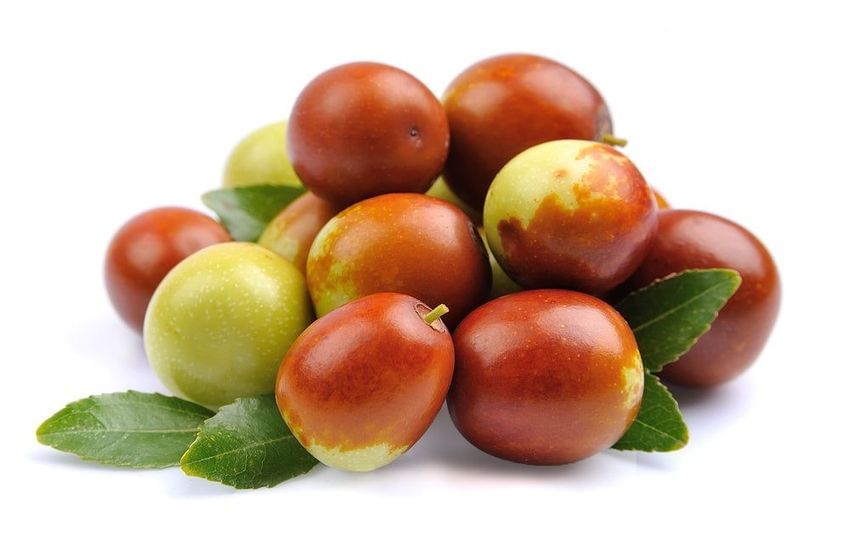Health Benefits of Jujube
What are the health benefits of jujube?
Jujube, also known as Chinese date, is a fruit that offers several health benefits:
- Rich in Antioxidants: Jujubes are packed with antioxidants, including vitamin C, flavonoids, and phenolics, which help protect cells from damage caused by free radicals and reduce inflammation in the body.
- Improved Digestive Health: The fiber content in jujubes can help promote healthy digestion by adding bulk to stool and supporting regular bowel movements. This can help prevent constipation and promote overall digestive health.
- Boosted Immune System: The high vitamin C content in jujubes can help boost the immune system and protect against infections and illnesses such as pneumonia and bronchitis.
- Better Sleep: Jujubes are sometimes used in traditional medicine to promote relaxation and improve sleep quality. They contain compounds that may have sedative effects and help reduce anxiety and insomnia.
- Heart Health: Jujubes contain potassium, which is essential for heart health and helps regulate blood pressure. The antioxidants in jujubes may also help reduce the risk of heart disease by protecting against oxidative stress and inflammation.
- Improved Skin Health: The vitamin C and other antioxidants in jujubes can help promote healthy skin by protecting against damage from UV radiation, reducing signs of aging, and promoting collagen production.
- Potential Anti-Cancer Properties: Some studies suggest that compounds found in jujubes may have anti-cancer properties and could help inhibit the growth of cancer cells, although more research is needed in this area.
- Liver Protection: Jujubes may help protect the liver from damage caused by toxins and oxidative stress, thanks to their antioxidant content.
Overall, jujubes are a nutritious fruit that can be a valuable addition to a healthy diet. They can be eaten fresh or dried and are often used in cooking, baking, or as a snack.
What are the health risks of jujube?
Jujube is generally considered safe for most people when consumed in moderate amounts as a food or supplement. However, there are a few considerations and potential risks to be aware of:
- Allergic Reactions: Some individuals may be allergic to jujube fruit. Allergic reactions can range from mild symptoms like itching and hives to more severe reactions like swelling of the face, tongue, or throat, which can be life-threatening in rare cases.
- Digestive Issues: Eating large amounts of jujube fruit or consuming it in concentrated forms (such as jujube extract) may cause digestive issues like diarrhea, stomach cramps, or bloating in some individuals, especially those with sensitive stomachs or digestive disorders.
- Blood Sugar Levels: Jujube fruit contains natural sugars, so individuals with diabetes or those monitoring their blood sugar levels should consume it in moderation to avoid spikes in blood sugar levels.
- Drug Interactions: Jujube supplements or extracts may interact with certain medications, including blood thinners and medications for diabetes or high blood pressure. If you are taking medications, consult with your healthcare provider before using jujube supplements.
- Pesticide Residues: Like other fruits, jujube fruit may contain pesticide residues if not organically grown. It’s advisable to wash jujube fruit thoroughly before eating or choose organic varieties to minimize exposure to pesticides.
- Not Recommended During Pregnancy: While jujube is generally safe for most people, pregnant women are advised to consume it in moderation and consult with a healthcare provider before adding it to their diet, as there is limited research on its safety during pregnancy.
Overall, jujube is a nutritious fruit with several health benefits, but it’s important to consume it in moderation and be aware of any potential risks, especially if you have allergies, digestive issues, or are taking medications. If you experience any adverse reactions after consuming jujube, it’s best to consult with a healthcare provider.




